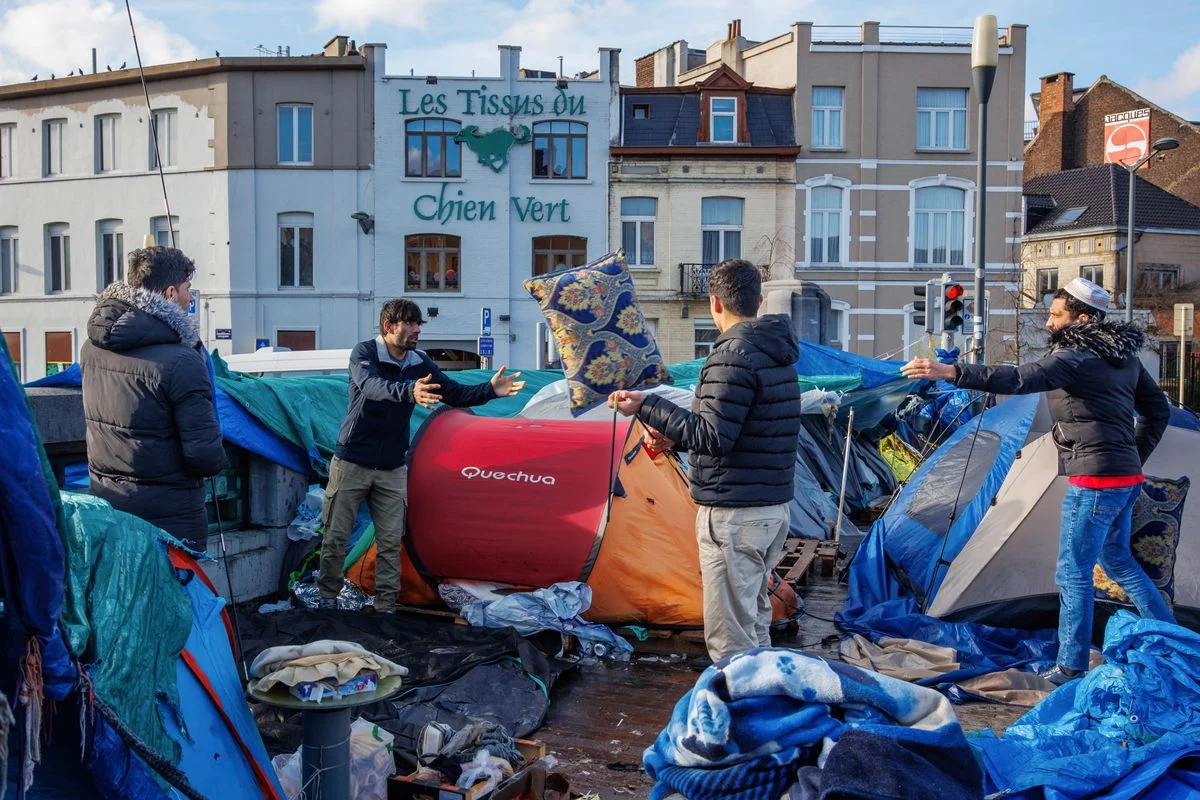Belgium’s decision to deny housing to single men seeking refuge has sparked a heated debate, raising concerns about the prioritization of families over vulnerable individuals. The government argues that due to limited asylum capacity, families, women, and children should receive priority, but aid organizations and human rights advocates are criticizing the move for potential violations of international agreements.
The distressing sight of long rows of tents lining the sidewalks outside Brussels’ main processing station has marred Belgium’s reputation. The country has faced persistent criticism for failing to offer adequate refuge to the thousands seeking safety from persecution in their home countries.
Refugee State Secretary Nicole de Moor expressed apprehension on Wednesday about the impending winter exacerbating the situation. She emphasized that her concern is to prevent children from ending up on the streets due to lack of shelter. De Moor anticipates a surge in demand for refugee housing in the coming months and defended the decision to prioritize families, women, and children while leaving single men to find their own solutions.
Philippe Hensmans, the head of Amnesty International Belgium, vehemently criticized the strategy adopted by the Belgian government. He commented, “While we believed we had witnessed various actions, this takes it to a new level. The Belgian government isn’t merely neglecting human rights; it’s essentially undermining them by ‘suspending’ the reception of single male asylum-seekers.”
The influx of asylum seekers over the past two years has pushed Belgium’s capacity to its limits. Last year, nearly 37,000 applications for protection were submitted to the government agency Fedasil, resulting in challenges to provide suitable housing for all.
Despite the difficulties, De Moor defended Belgium’s stance, asserting that the country has already made substantial efforts to accommodate refugees. She called upon other European Union nations to increase their contributions to the refugee crisis.
In December, Europe’s leading human rights organization urged Belgian authorities to enhance their support for asylum seekers after thousands spent freezing nights on the streets of Brussels. The shortage of available spaces in receiving centers raised alarms about potential infringements on the rights of asylum seekers, particularly their access to essential necessities like healthcare.
The ongoing debate over Belgium’s approach to refugees underscores the intricate dilemmas faced by countries grappling with high numbers of asylum seekers. Balancing limited resources with upholding human rights commitments remains a challenge, highlighting the urgency of addressing the complexities surrounding refugee and migration policies.




